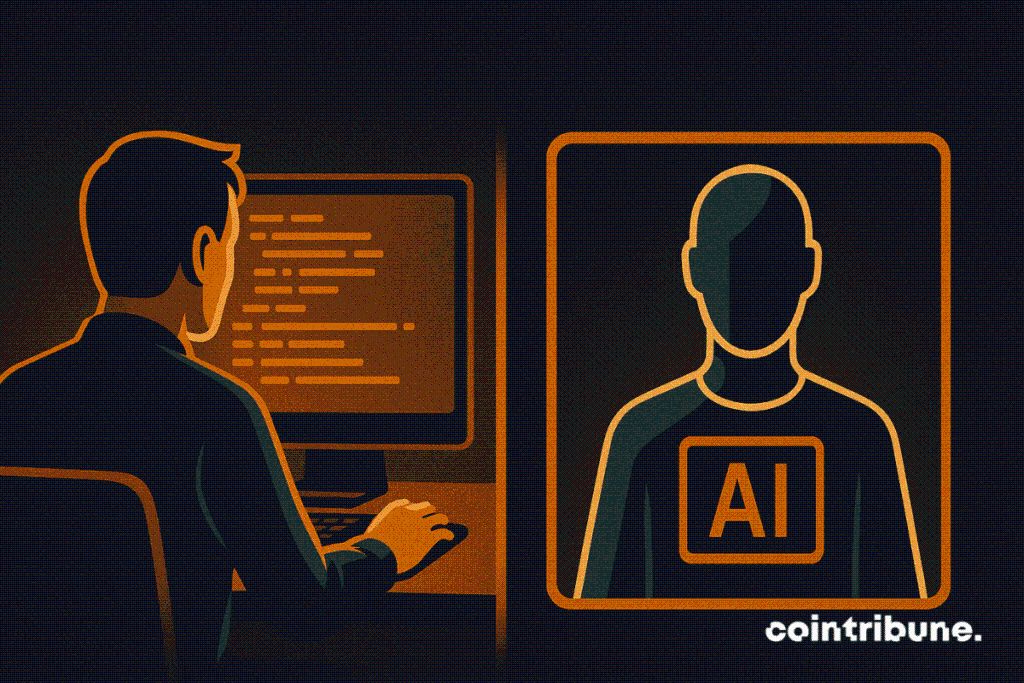90% of coders use AI, but consider it unreliable
According to the Google Cloud DORA 2025 report, 90% of developers now integrate AI into their daily lives. However, less than a quarter of them actually trust its results. Between increased productivity and persistent skepticism, the industry navigates a paradox.

In brief
- 90% of tech professionals now use AI in their daily work, an increase of 14% in one year.
- Only 24% of developers actually trust the results produced by these tools, according to Google.
- 46% of developers actively distrust AI accuracy, compared to only 33% who trust it.
- This massive adoption hides cautious use where every generated line of code must be verified.
AI usage is booming among developers despite growing distrust
The Google Cloud DORA 2025 report, published Wednesday, paints an irrefutable picture: nearly 90% of developers now use AI in their daily activities, up from 76% in 2024.
Usage covers the entire development cycle, from code generation to debugging, including writing technical documentation.
But behind this massive enthusiasm lies a more nuanced reality: only 24% of respondents believe that AI-produced results are truly reliable.
The study , conducted with about 5,000 engineers worldwide, reveals that developers spend on average two hours a day with AI assistants.
Yet, most treat their suggestions like “spam” content to be systematically checked. This paradox echoes recent Stack Overflow findings, which show distrust of AI rose from 31% to 46% in one year, despite ever-wider adoption.
Even at Google, caution remains the rule. Ryan Salva, head of Gemini Code Assist, admits it’s inevitable to use AI in daily work, but engineers know they must validate every line.
CEO Sundar Pichai, meanwhile, highlights a measurable gain, citing a 10% increase in team productivity due to these tools.
Between dependence and systemic risks
Dependence on artificial intelligence is no longer in doubt: 65% of developers admit to relying heavily on these tools , even without granting them full trust. This paradox reflects an industry that can no longer do without AI, while remaining aware of potential abuses.
Recent security flaws – such as the “copypasta” attacks highlighted by HiddenLayer – show how coding assistants can be weaponized for malicious purposes.
Google tries to regulate this dependence with its DORA capability model. It emphasizes clear protocols, user-centered design, and supervised workflows to avoid uncontrolled AI autonomy. The goal is simple: maximize productivity gains without turning these tools into time bombs.
Beyond engineering, this debate ties into a broader concern. As other surveys have shown, Americans themselves see AI as a useful but dehumanizing tool , fearing it erodes creativity and social bonds. The software industry is no exception: developers regard AI as a brilliant but unpredictable colleague.
In short, AI is now a must-have for developers. However, widespread distrust highlights a major challenge: building a digital future where these technologies are not only used but also deemed trustworthy. For now, AI remains an indispensable ally … under close watch.
Disclaimer: The content of this article solely reflects the author's opinion and does not represent the platform in any capacity. This article is not intended to serve as a reference for making investment decisions.
You may also like
Hyperliquid Denies Insider Trading Allegations as $1 Billion HYPE Burn Vote Approaches
Nearly 50% of all XRP Supply is Now in Loss as Price Settles Under $2
Bitcoin’s Underperformance Fuels “Endgame” Fears Amid Gold’s Record Run
VET Holders: What to Do After VeChain’s Hayabusa Upgrade
